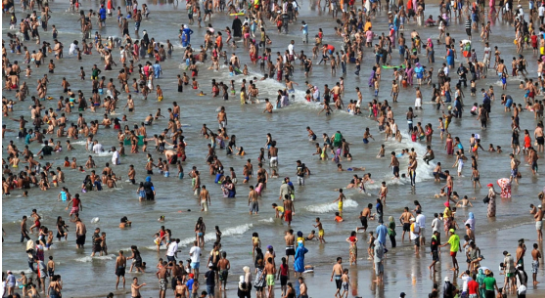A heatwave in Morocco has resulted in the deaths of at least 21 people in the central city of Beni Mellal within a 24-hour period, as announced by the health ministry on Thursday. The meteorology department reported that high temperatures, reaching up to 48 degrees Celsius (118 Fahrenheit) in some regions, affected much of the North African country from Monday to Wednesday.
In Beni Mellal, “most of the deaths involved people with chronic illnesses and the elderly, with high temperatures exacerbating their health conditions,” the regional health directorate stated. The ministry has not confirmed if this is the highest recorded death toll from a heatwave in the country.
Beni Mellal, located more than 200 kilometers (150 miles) southeast of Casablanca, was still experiencing temperatures of 43 degrees Celsius on Thursday. However, temperatures are expected to drop in the coming days, with a forecasted 10-degree decrease in Marrakesh by Sunday.
Economic Impact
Morocco is experiencing its sixth consecutive year of drought and recorded its hottest winter since 1940 this past January, with temperatures nearing 37 degrees Celsius in some areas.
The prolonged drought and rising temperatures have significantly impacted the vital agricultural sector by lowering reservoir levels and increasing water evaporation to 1.5 million cubic meters (53 million cubic feet) per day, according to Water Minister Nizar Baraka.
The High Commission for Planning reported in May that the “labour market continues to suffer from the effects of the drought,” noting an increase in the unemployment rate to 13.7 percent in the first quarter, up from 12.9 percent in the same period last year. The figures indicated that around 159,000 jobs in the agricultural sector have been lost.
Morocco’s record temperature of 50.4 degrees Celsius was set in August last year in the coastal city of Agadir. Globally, Monday was the hottest day recorded since measurements began in 1940, according to the European Union’s Copernicus Earth observation program.
The program has predicted that daily records would be broken this summer in the northern hemisphere, attributing the prolonged period of intense heat to climate change. Scientists have linked climate change to more frequent, stronger, and prolonged extreme weather events, including heatwaves.



